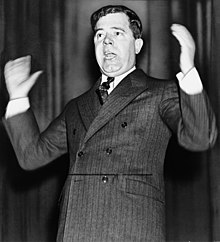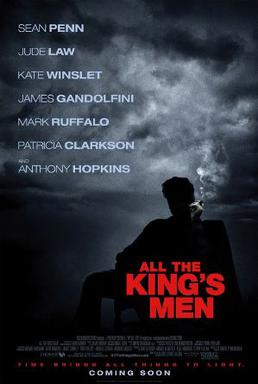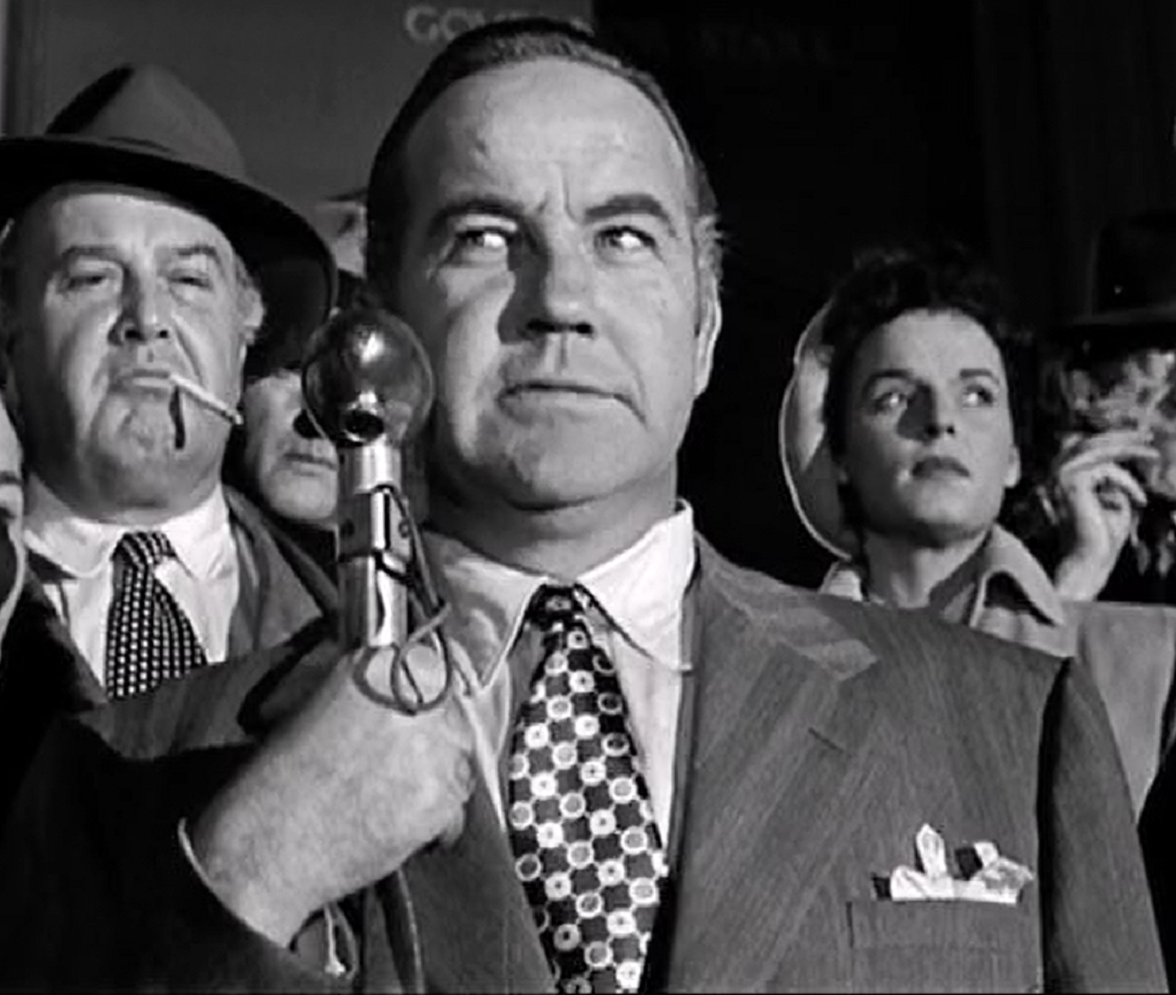ALL THE KING'S MEN (1949) vs. ALL THE KING'S MEN (2006)
Stark Realities...
Timing, they say, is everything. When it comes to the film versions of All The King's Men, truer words were not spoken. You have a Best Picture winner on one side, a financial and critical bomb on the other, yet both are the same story. How is this possible? How can one version be respected and the other reviled when you have the same source material and a first-rate cast for both?
Timing is an answer, but not the whole answer, not by a Huey Long shot (no pun intended).
It is a curious case that the 2006 version of All The King's Men is the first major remake of a Best Picture winner to be so open about its aspirations to be the first remake of a Best Picture winner to itself win Best Picture in its own right. Out of all the Best Picture winners up to 2009, only three previous winners have been remade before the 1949 version of All The King's Men was : 1931's Cimarron in 1960, 1932's Grand Hotel in 1945 (as Week-End at the Waldorf), and 1936's Mutiny on the Bounty in 1962 (which was also nominated for Best Picture).*
It's not a surprise that the 1949 version isn't as well known as more recent Best Picture winners, but I would argue it isn't because it is not good. Rather, it's because it was a product of its time.
To make a fair comparison between 1949 and 2006, we have to take into account the time when they were made. The Robert Penn Warren novel was published in 1946. The inspiration for the central character of Willie Stark, Louisiana Governor and Senator Huey P. Long, had been assassinated in 1935, a gap of eleven years. The first film was released three years after publication, and if you're keeping count, fourteen years after Long's death. Therefore, the audiences watching would
- have had an understanding of what and who the story was about
- have had some knowledge of the best-selling Pulitzer Prize-winning novel
- had memories either pro or con about Senator Long.
The 2006 version has a wider gap, and more than just in time. There is now sixty years since publication, seventy-one since the assassination. That means 2006 audiences would not know about Long; that would have required knowledge of history (which, unfortunately, Americans are loath to learn about). However, the novel today may be read for school but it isn't as popular as it was when first published as opposed to Gone With The Wind or The Lord of The Rings. In other words, the 2006 version has the starting hurdle of telling a story that is based on history most Americans don't know from a story most Americans haven't read (myself included).
That, however, is an easy way out. 1949 set out to make a movie that would appeal to audiences, while 2006 set out to make A Masterpiece, a great Work of Art. Granted, 1949 audiences would be drawn to the Long/Stark story more than 2006 audiences, but also we have to measure the aspirations of both. 1949 is a strong film because it focuses squarely on the rise and fall of a humble man who becomes drunk (in some cases literally) with power. 2006 is an unfocused film about a mean man who merely appears to be drunk when he's ranting and raving.
1949 director Robert Rossen, above all else, trusts his audience. He doesn't try to be flashy, but tells the story straight, allowing us to see Stark's transformation. 2006 director Steven Zaillian decided to mix various stories together, and that has the unfortunate effect of not allowing us to see Stark's shift from good man to evil man. 1949 had movement, had flow, had the characters engage closely with each other. 2006 was surprisingly empty and hollow, at times too wrapped up in its self-importance to bother trying to entertain the audience (which any film regardless of genre should have as one of its top priorities).
Now, perhaps it is time to compare the performers from 1949 and 2006.
BEST JACK BURDEN
John Ireland
Jude Law
Ireland has an Everyman quality, which is what Burden was in spite of his wealthy background. Law has the burden (no pun intended) of carrying a Southern accent (with varying degrees of success). We are allowed to see his evolution from enthusiastic champion of Stark to his henchman and the effect it has on him. With Law, we don't get the transformation of the corruption of his soul. We just have to think he's a good guy when he comes off as rather cynical instead of either naive or sincere.
BEST SADIE BURKE
Mercedes McCambridge
Patricia Clarkson
This isn't Clarkson's fault because she really had nothing to do. This hobbles her performance in her version because we never got to see just how close Sadie and Willie got. It's a curious thing that again, McCambridge wasn't as glamorous as Clarkson was, but instead was more a regular person. It was right for her character to be cynical (and wrong for Law's to be). Side note: I thought both Clarkson and Law were at times too beautiful to be believable in their roles, but I digress).
BEST WILLIE STARK
Broderick Crawford
Sean Penn
Granted, Penn has one more Oscar than Crawford, but if you see Milk and Crawford's take on Willie Stark, they share something in common: they are both alive and real. Just as Penn humanized Harvey Milk, Crawford humanizes Willie Stark. In spite of all his duplicitous dealings we don't hate Crawford's Stark and can see in his rise something admirable. The story helps in that we are allowed to first identify with this average man who rises above his station via education but who then is corrupted by lusts and power. With Penn, we never see an evolution because he started out as evil and ends as evil. In short, Penn brings no humanity to Willie Stark while Crawford does.
BEST ALL THE KING'S MEN
1949
2006
By a Louisiana mile. The 1949 version concentrated on the story, kept things going and kept things small. Looking at the film, it doesn't look like it had a large budget or that it was seen as a prestige picture. By being able to concentrate on the story, we were able to get to know the characters, the story, and see how absolute power corrupts absolutely.
The 2006 version seems to have a heightened, almost unhinged and irrational sense of grandeur, that it was suppose to be great rather than good.
Overall, the 1949 version of All The King's Men has a strong story with strong acting, while the 2006 version has a chaotic story with broad and at times silly acting. 1949 has the benefit that the cast was made up of Americans, while 2006 forced British actors to try to sound not just like Americans, but Americans from the South.
Some Americans can't handle a Southern tone (case in point, James Gandolfini from 2006), so the British performers either overcompensated (Jude Law) or didn't appear to bother trying (Anthony Hopkins).
In the final analysis, 2006 is TRYING to be A Great Film. 1949 just IS a great film without trying.
* There have been remakes of Best Picture nominees, though the only one that I would count as a real remake is 1978's Heaven Can Wait (a remake of 1941's Here Comes Mr. Jordan).
In 1934 the Cecil B. DeMille version of Cleopatra with Claudette Colbert was nominated for Best Picture and in 1963 you had the Joseph L. Mankiewicz's Cleopatra starring Elizabeth Taylor. 2001 had Moulin Rouge! and 1952 had Moulin Rouge, and two filmed versions of Romeo & Juliet received nominations in 1936 and 1968.
The 1963 version of Cleopatra was a remake of the 1934 version but neither won. 2001 Moulin Rouge! was different from 1952's Moulin Rouge in that the latter was a biopic on Toulouse-Lautrec while the former was a musical that revolved around the famous Paris club where Toulouse-Lautrec was a minor character. Therefore, while 2001 may have been inspired by 1952 it was not based on it.
Romeo & Juliet doesn't quite count as a remake because both came from the same source (which is why I didn't include 1948's Best Picture winner, Hamlet, for the same reason). 1959's Best Picture, Ben-Hur, curiously, is a remake (of a silent picture), as is the 1956 Best Picture nominee The Ten Commandments, but the originals were made before the Academy of Motion Picture Arts & Sciences came into being.
Finally, Marty (Best Picture of 1955) is a remake, but a remake of a 1953 television play, as was the case with Traffic. In the strictest sense, it can count as a remake, but they were in different mediums (television vs. film).

.jpg)






No comments:
Post a Comment
Views are always welcome, but I would ask that no vulgarity be used. Any posts that contain foul language or are bigoted in any way will not be posted.
Thank you.